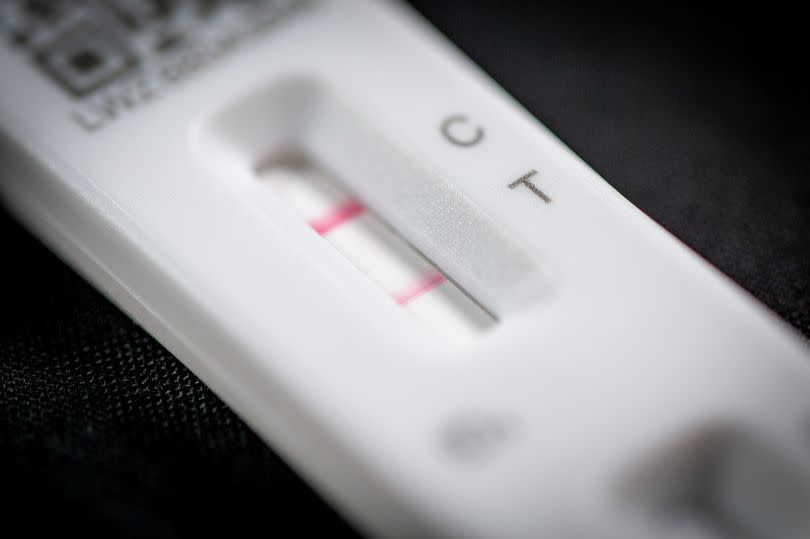New covid variants and symptoms as cases jump up

A new group of covid variants are thought to be behind a jump in cases across the UK.
In the week up to June 12, cases rose by 7.8%, with 2,053 people reporting contracting the virus. Covid deaths rose by 26.4% in the week up to June 7, going from 110 to 139.
Patients admitted to healthcare settings with covid, however, fell in the week up to May 29 - from 1,718 to 1,567, according to the latest UK Health Security Agency (UKHSA) data.
READ MORE: School, work and isolation rules as covid cases jump up again
READ MORE: Jay Slater 'last sighting' Tenerife picture shared by teen's desperate family
The increase in cases comes as new FliRT variants have rapidly become the dominant strains in the UK, amid fears they could spread more easily that older strains and could evade immunity from vaccines and previous infections.
The new variant has been named FLiRT after the technical name for its mutation and this group includes the KP.3, KP.2 and KP.1.1 strains. Last month, Lara Herrero, Research Leader in Virology and Infectious Disease at Griffith University, said the FLiRT variants "may be more transmissible than earlier covid variants."
She told The Conversation: ""In more positive news, there’s no evidence the FLiRT variants cause more severe disease than earlier variants. Still, that doesn’t mean catching a covid infection driven by FLiRT is risk-free."
Covid symptoms
According to the NHS, symptoms can include:
a high temperature or shivering (chills) – a high temperature means you feel hot to touch on your chest or back (you do not need to measure your temperature)
a new, continuous cough – this means coughing a lot for more than an hour, or three or more coughing episodes in 24 hours
a loss or change to your sense of smell or taste
shortness of breath
feeling tired or exhausted
an aching body
a headache
a sore throat
a blocked or runny nose
loss of appetite
diarrhoea
feeling sick or being sick
The symptoms are very similar to symptoms of other illnesses, such as colds and flu.
Most people feel better within a few days or weeks of their first Covid-19 symptoms and make a full recovery within 12 weeks. For some people, it can be a more serious illness and their symptoms can last longer.
Receive newsletters with the latest news, sport and what's on updates from the Liverpool ECHO by signing up here

 Yahoo News
Yahoo News 
